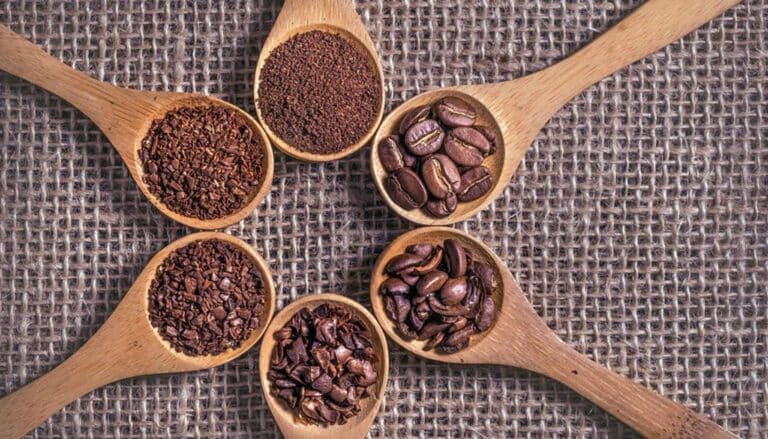Millions of people around the world drink coffee every day for its rich taste and the energy boost it gives. People love coffee for many reasons, including its flavor and the health benefits some believe it offers. One hot topic is how coffee might help with weight loss, and this article will dive into that discussion to see if coffee can really be a friend in losing weight.
The story of coffee starts in the Ethiopian highlands and travels all the way to the cups of people everywhere, showing how much everyone loves it. It’s more than a morning habit—it’s a vital part of cultures and economies worldwide. Every day, people drink billions of cups of coffee, making it one of the most chosen drinks, right after water for some folks. With so many enjoying it, it’s important to understand how coffee affects health, particularly in terms of managing weight.
Will Coffee Help Me Lose Weight?
Coffee, particularly due to its caffeine content, can modestly aid in weight management by suppressing appetite, boosting metabolism, and enhancing physical performance, potentially leading to improved fat burning. However, the effectiveness of coffee in promoting significant weight loss is limited, and the benefits can diminish over time due to tolerance. Ultimately, while coffee may offer minor support for weight loss, a balanced diet and regular exercise are far more effective strategies for achieving and maintaining a healthy weight.
Common Beliefs and Myths About Coffee and Weight Loss
When it comes to coffee and losing weight, there’s a lot of different opinions and myths. Some people say coffee is great for losing weight because it can make your metabolism faster and might help you eat less. But, others caution about drinking too much, especially the fancy drinks with lots of calories, and talk about the downsides, like feeling more anxious or not sleeping well. This mix of opinions makes it tricky for someone trying to use coffee to help with weight management.
This article will try to make sense of how drinking coffee and trying to lose weight work together. We’ll look at what’s in coffee and how that might help or hinder weight loss. Then, we’ll check out what science says about caffeine’s effect on how fast our bodies burn calories and how it might make workouts better, along with how coffee affects our overall diet and lifestyle. We’ll give tips to those who love coffee and want to lose weight, and we’ll clear up some common myths and misunderstandings. By the end, you should have a better idea of where coffee stands when it comes to weight management and living healthily.
Understanding Coffee and Its Components

Coffee is more than just a beverage; it’s a complex mixture of water, caffeine, acids, lipids, sugars, and various bioactive compounds. These components contribute not only to the rich flavor and aroma of coffee but also to its health effects, including those related to weight loss. Let’s delve deeper into what makes up a cup of coffee and how different types of coffee can vary significantly in their calorie content.
Overview of Coffee: What Makes Up a Cup?
At its most basic, coffee is a brewed drink prepared from roasted coffee beans. However, the simplicity ends there. The brewing process extracts a myriad of substances from the beans, each contributing to the beverage’s final taste, aroma, and health properties. These substances include caffeine, diterpenes, chlorogenic acids, and other antioxidants, all varying in concentration depending on the coffee variety, roasting method, and brewing technique.
Caffeine: The Primary Active Ingredient
Caffeine is the most well-known active compound in coffee, responsible for its energizing effects. It works by blocking the action of adenosine, a neurotransmitter that promotes sleep, thereby increasing alertness and concentration. Beyond its immediate stimulatory effects, caffeine has been shown to enhance metabolic rate and fat oxidation, both of which are relevant to weight loss efforts. However, the degree to which caffeine can influence weight loss varies among individuals, depending on factors like genetics and tolerance to caffeine.
Antioxidants and Other Bioactive Compounds
Coffee is rich in antioxidants, such as chlorogenic acids, which have been linked to various health benefits, including reduced inflammation and improved heart health. These compounds can also influence glucose metabolism and fat storage, potentially contributing to weight management. Beyond antioxidants, coffee contains vitamins and minerals, including B vitamins, potassium, and magnesium, which play roles in overall health and may indirectly support weight loss.
How Different Types of Coffee Vary in Calorie Content
The calorie content of coffee can vary dramatically depending on how it’s prepared. Black coffee, which is simply coffee that has been brewed without the addition of milk, sugar, or cream, is very low in calories, typically containing fewer than 5 calories per cup. This makes it an ideal choice for those looking to enjoy coffee without impacting their daily calorie intake significantly.
On the other hand, specialty coffee drinks, such as lattes, cappuccinos, and mochas, can be high in calories due to the addition of milk, sugar, syrups, and cream. A large flavored latte or mocha can contain 250 calories or more, primarily from added sugars and fat. These drinks can contribute significantly to daily calorie intake, potentially hindering weight loss efforts if consumed frequently and in large quantities.
In summary, while black coffee offers a low-calorie option for coffee lovers, specialty coffee drinks can vary widely in their calorie content, impacting their suitability for a weight loss diet. Understanding these differences is crucial for anyone looking to manage their weight while still enjoying their favorite coffee beverages.
The Role of Caffeine in Weight Loss

Caffeine, the most widely consumed psychoactive substance in the world, plays a significant role in many people’s daily routines, primarily through coffee consumption. Its effects on the body are diverse, impacting everything from mental alertness to physical performance. When it comes to weight loss, caffeine is often cited for its potential benefits in boosting metabolism, enhancing fat burning, improving physical performance, and even suppressing appetite. Let’s explore these aspects in more detail.
How Caffeine Affects Metabolism
Metabolism refers to the process by which your body converts what you eat and drink into energy. Caffeine has been shown to stimulate the central nervous system, which can lead to an increase in metabolic rate. Essentially, this means that the body processes and burns calories at a slightly faster rate. Research suggests that caffeine can increase the resting metabolic rate (RMR) by up to 11%, with larger doses having a more significant effect, although individual responses can vary.
The Thermogenic Effect and Increased Fat Burning
Thermogenesis is the process of heat production in organisms, which in humans is closely tied to metabolism and energy expenditure. Caffeine intake can enhance thermogenesis, leading to increased energy expenditure and fat burning. This effect is particularly notable in the period following caffeine consumption, where the body’s fat oxidation rate (the breakdown of fatty acids) can increase. This suggests that caffeine can directly influence the body’s ability to burn fat, albeit the effect might be more pronounced in individuals who are not regular caffeine consumers.
Caffeine’s Impact on Physical Performance
Caffeine’s ability to enhance physical performance is well-documented, making it a popular pre-workout supplement. It can improve various aspects of performance, including:
- Enhanced endurance: Caffeine consumption has been linked to prolonged time to exhaustion, meaning individuals can perform endurance activities for longer before feeling tired. This effect is beneficial for both aerobic exercises like running and cycling and anaerobic exercises like sprinting.
- Increased strength and power: Some studies have found that caffeine can increase muscle strength and power, although these effects may be more variable across individuals.
- Improved focus and coordination: By stimulating the central nervous system, caffeine can also enhance cognitive functions related to sports and exercise, such as concentration, alertness, and coordination.
The Appetite-Suppressing Effects of Caffeine
While the evidence is mixed, some research suggests that caffeine may have short-term appetite-suppressing effects. This could potentially help reduce overall calorie intake by decreasing the feeling of hunger or prolonging the period before hunger sets in again after eating. However, these effects are not strong enough to rely on caffeine as a primary method for controlling appetite over the long term.
In summary, caffeine can contribute to weight loss efforts through several mechanisms, including increasing metabolism, enhancing fat burning, improving physical performance, and potentially suppressing appetite. However, it’s important to remember that these effects can vary significantly between individuals and might diminish with regular caffeine use due to tolerance development. Therefore, while caffeine can be a helpful tool in a broader weight management strategy, it should not be considered a standalone solution for weight loss.
Scientific Evidence on Coffee and Weight Loss

The link between coffee consumption and weight loss has been the subject of numerous scientific studies, with researchers examining how components like caffeine may influence metabolism, fat burning, and overall energy expenditure. These studies have produced a range of findings, some supporting the weight loss claims associated with coffee, while others question or refute these claims. Here’s an overview of the research landscape, highlighting the complexities and nuances in understanding coffee’s role in weight management.
Overview of Research Findings
Research on coffee and weight loss spans various aspects, from caffeine’s metabolic effects to the impact of other coffee compounds on health and weight management. While many studies suggest positive effects of coffee and caffeine on metabolism and fat oxidation, the results are often nuanced, with outcomes varying based on factors like dosage, individual tolerance, and the presence of other bioactive compounds in coffee.
Studies Supporting Weight Loss Claims
Several studies have found that caffeine intake can increase metabolic rate and enhance fat burning, particularly in the short term. For example, research indicates that caffeine can increase resting metabolic rate (RMR) by 3-11%, with higher doses having a more pronounced effect. Other studies highlight caffeine’s role in enhancing physical performance, suggesting that it can help individuals exercise longer and at higher intensities, potentially leading to increased calorie burn.
Moreover, some research has focused on specific coffee compounds, such as chlorogenic acid, and their potential to influence glucose metabolism and fat accumulation. These studies suggest that coffee, beyond just its caffeine content, may have additional benefits for weight management through various metabolic pathways.
Research Questioning or Refuting These Claims
On the flip side, some research questions the long-term effectiveness of coffee and caffeine for weight loss. Tolerance to caffeine’s effects can develop quickly, potentially diminishing its metabolic benefits over time. Additionally, studies that have looked at coffee consumption in relation to weight management over extended periods often find the impact to be minimal or inconsistent.
Critics also point out that many studies on caffeine and weight loss are conducted in controlled environments with caffeine doses that may not reflect typical consumption patterns. Furthermore, when considering the calorie content of many popular coffee beverages, the potential weight loss benefits of caffeine might be offset by the high sugar and fat content of these drinks.
Limitations of Current Studies and the Need for More Research
A significant challenge in this research area is the variability in study designs, populations, and coffee consumption patterns, making it difficult to draw definitive conclusions. Many studies are short-term, focus on caffeine in isolation rather than coffee as a whole, or rely on self-reported data, which can be inaccurate.
Additionally, individual differences in metabolism, genetic factors, and lifestyle choices can influence how coffee affects weight, suggesting that its impacts may not be universal. There’s also a need for more research on the effects of different types of coffee and brewing methods, as these can alter the beverage’s chemical makeup and, consequently, its health effects.
In summary, while there is evidence both supporting and questioning the role of coffee in weight loss, the scientific consensus suggests that coffee, particularly when consumed without high-calorie additives, can be a part of a healthy diet for those looking to manage their weight. However, coffee should not be relied upon as a primary strategy for weight loss. Future research should aim to clarify the long-term impacts of coffee consumption on weight management and explore the mechanisms behind the observed effects.
How Coffee Consumption Can Affect Diet and Lifestyle

Coffee is a staple in many diets worldwide, celebrated for its rich flavor and energizing effects. When considering its role in a weight loss diet, it’s essential to balance the potential benefits with the risks, understanding how moderation plays a crucial role in maximizing its positive aspects while minimizing negative outcomes. Let’s explore how coffee consumption can influence diet and lifestyle, particularly in the context of weight management.
Coffee as a Part of a Weight Loss Diet
Incorporating coffee into a weight loss diet can have several potential benefits, primarily due to its caffeine content, which can enhance metabolism and increase fat burning. Additionally, the low-calorie nature of black coffee makes it an attractive option for those trying to reduce their calorie intake without giving up their favorite beverages. However, it’s crucial to be mindful of the additions to coffee, such as sugar and cream, which can significantly increase its calorie content.
Potential Benefits and Risks
The potential benefits of coffee extend beyond weight loss. Its high antioxidant content can contribute to overall health, offering protective effects against certain diseases. However, these benefits come with risks, particularly when consumption exceeds moderate levels. Excessive coffee intake can lead to negative health effects, which include but are not limited to sleep disturbances, increased heart rate, and elevated blood pressure. These risks highlight the importance of moderation in coffee consumption.
The Importance of Moderation
Moderation is key when incorporating coffee into a diet. For most people, moderate coffee consumption is considered safe and can be part of a healthy lifestyle. However, “moderation” can vary between individuals, depending on factors such as caffeine sensitivity, existing health conditions, and overall diet. Generally, up to 3-4 cups (400 mg of caffeine) per day is considered moderate for most healthy adults, though individual tolerances may vary.
Negative Effects of Excessive Coffee Consumption
Excessive coffee consumption can lead to several negative health effects, including:
- Sleep Disturbances: Caffeine can interfere with normal sleep patterns, leading to difficulties falling asleep, decreased sleep quality, and shorter sleep duration. These effects can contribute to overall fatigue and may counteract the energy-boosting benefits of coffee.
- Increased Heart Rate and Blood Pressure: High doses of caffeine can stimulate the heart, leading to increased heart rate and elevated blood pressure, which may pose risks for individuals with heart conditions.
- Potential for Addiction: Regular, heavy caffeine use can lead to dependence, with withdrawal symptoms including headache, fatigue, and irritability if caffeine intake is suddenly reduced.
In summary, while coffee can be a beneficial component of a weight loss diet and contribute to a healthy lifestyle, it’s important to consume it in moderation to avoid negative health effects. Individuals should consider their own health status, caffeine tolerance, and lifestyle factors when determining their optimal coffee intake. As with any dietary component, the key to incorporating coffee into a healthy diet is balance and moderation.
Practical Tips for Coffee Lovers Looking to Lose Weight

For many, coffee is a non-negotiable part of the daily routine, offering not just a beloved taste but also a much-needed energy boost. If you’re a coffee lover looking to lose weight, you don’t necessarily have to give up your favorite brew. Instead, making mindful choices about how you consume coffee can help you enjoy it as part of a healthy, weight-conscious lifestyle. Here are some practical tips to help you balance your coffee consumption with your weight loss goals.
Choosing the Right Type of Coffee
- Opt for Quality Over Quantity: Choose high-quality coffee beans that are rich in flavor. You may find that a smaller amount of a more flavorful brew satisfies your coffee craving better than larger quantities of less satisfying coffee.
- Understand the Impact of Different Brews: Be aware that different brewing methods can affect the calorie content and antioxidant levels of your coffee. For instance, espresso has more caffeine per ounce than drip coffee, but because servings are smaller, you may consume less caffeine overall.
Opting for Black Coffee or Low-Calorie Alternatives
- Go Black: Drinking coffee black is the best option for those looking to lose weight, as it contains minimal calories. If black coffee is too bitter for you, consider trying a different roast or brewing method to find a taste you enjoy without added calories.
- Use Low-Calorie Additives: If you can’t stand black coffee, look for low-calorie alternatives to sugar and cream. Options like almond milk, stevia, or cinnamon can add flavor without significantly increasing the calorie count.
Timing of Coffee Consumption for Optimal Benefits
- Leverage Caffeine for Workouts: Consuming coffee about a half-hour before exercise can enhance your performance, potentially leading to a more intense and effective workout. This could help you burn more calories and improve your physical fitness over time.
- Mind Your Sleep: Avoid drinking coffee late in the day, as it can interfere with your sleep quality. Poor sleep has been linked to weight gain, so it’s important to ensure that your coffee habit doesn’t compromise your rest.
Incorporating Coffee into a Balanced Diet and Exercise Regimen
- Consider Coffee as Part of Your Fluid Intake: While water should be your primary beverage for hydration, black coffee or coffee with very low-calorie additions can also contribute to your daily fluid intake.
- Balance Your Diet: Make sure that your overall diet is balanced and nutritious. Coffee can be a part of this diet, but it shouldn’t be relied upon as a primary source of energy or nutrition.
- Complement with Exercise: Use the energy boost from your coffee to enhance your physical activity. Regular exercise is crucial for weight loss and overall health, and a timely cup of coffee can make your workout more enjoyable and effective.
By following these tips, coffee lovers can continue to enjoy their favorite beverage without compromising their weight loss efforts. The key is to be mindful of the type, amount, and timing of coffee consumption, ensuring it complements a balanced diet and active lifestyle.
Common Myths and Misconceptions About Coffee and Weight Loss

Coffee, one of the world’s most popular beverages, is often subject to myths and misconceptions, especially regarding its impact on weight loss. While coffee can be a part of a healthy diet and may have benefits that contribute to weight management, it’s crucial to separate fact from fiction. Here, we debunk some of the most common myths about coffee and weight loss, providing clarity on what coffee can and cannot do for your health.
Debunking Popular Myths
Myth 1: “Coffee can replace a meal”
- Reality: This is a dangerous misconception. While coffee may suppress your appetite temporarily, it does not provide the essential nutrients, vitamins, and minerals that a balanced meal would. Relying on coffee to replace meals can lead to nutritional deficiencies and potentially encourage unhealthy eating patterns. For sustainable weight loss and overall health, it’s important to consume regular, nutrient-dense meals.
Myth 2: “All types of coffee are equally beneficial for weight loss”
- Reality: Not all coffee drinks are created equal, especially when it comes to weight loss. Black coffee is low in calories and can be beneficial as part of a weight loss diet. However, many popular coffee drinks are high in calories, sugar, and fat. For example, specialty coffee drinks like lattes, frappuccinos, and mochas can contain as many calories as a full meal. Choosing these types of coffee over black coffee can inadvertently lead to weight gain rather than loss.
The Truth Behind These Misconceptions
Understanding the role of coffee in a weight loss journey involves acknowledging its benefits and limitations. Coffee, particularly black coffee, can enhance metabolic rate and fat burning slightly in the short term. However, it is not a miracle weight loss solution and should not be used as a substitute for a balanced diet and regular exercise.
- Appetite Suppression: While caffeine may temporarily reduce feelings of hunger, it is not a sustainable or healthy strategy for weight management. Long-term weight loss and health require a balanced approach to nutrition.
- Calorie Content Awareness: Awareness of the calorie content in various types of coffee drinks is crucial. Opting for black coffee or using low-calorie additives can help you enjoy your coffee without compromising your weight loss goals.
- Overall Lifestyle: Coffee consumption should be one small part of a comprehensive approach to health that includes balanced nutrition, regular physical activity, adequate hydration, and sufficient sleep.
In conclusion, while coffee has its place in a healthy lifestyle, it’s important to approach its consumption with knowledge and moderation. Understanding the real impacts of coffee on weight loss and debunking the common myths surrounding it can help individuals make informed decisions about their diet and health.
Conclusion
Throughout this article, we’ve explored the intricate relationship between coffee consumption and weight loss, debunking common myths, and highlighting how coffee can play a role in a balanced weight management strategy. The key points discussed provide a comprehensive understanding of how coffee affects the body and its potential benefits and drawbacks in the context of losing weight. Let’s summarize these insights and conclude with a perspective on a balanced approach to coffee consumption for those looking to manage their weight effectively.
Summary of Key Points Discussed
- Understanding Coffee and Its Components: We began by exploring what makes up a cup of coffee, focusing on caffeine, antioxidants, and other bioactive compounds, and how different types of coffee vary in calorie content.
- The Role of Caffeine in Weight Loss: We discussed how caffeine affects metabolism, enhances fat burning, impacts physical performance, and can suppress appetite, albeit temporarily.
- Scientific Evidence on Coffee and Weight Loss: The article reviewed current research findings, acknowledging both studies that support weight loss claims and those that question or refute these claims, highlighting the need for more comprehensive research.
- Coffee Consumption, Diet, and Lifestyle: We emphasized the importance of moderation, addressing potential benefits and risks associated with coffee consumption, including the negative effects of excessive consumption on sleep, heart rate, blood pressure, and the potential for addiction.
- Practical Tips for Coffee Lovers: For those looking to lose weight without giving up coffee, we offered practical advice on choosing the right type of coffee, opting for low-calorie alternatives, timing of consumption, and incorporating coffee into a balanced diet and exercise regimen.
- Common Myths and Misconceptions: Finally, we debunked popular myths about coffee and weight loss, stressing that coffee cannot replace meals and that not all types of coffee are equally beneficial for weight management.
The Balanced Approach to Coffee Consumption and Weight Loss
The journey through the complex relationship between coffee and weight loss highlights the importance of a balanced, informed approach. While coffee, particularly black coffee, can be part of a healthy diet and potentially aid in weight management, it is not a standalone solution for weight loss. Successful weight management involves a comprehensive lifestyle that includes a balanced diet, regular physical activity, adequate hydration, and sufficient sleep.
Encouragement to Focus on Overall Healthy Lifestyle Choices
We encourage individuals to focus on overall healthy lifestyle choices, recognizing that coffee can be a part of this lifestyle when consumed mindfully and in moderation. It’s crucial to consider the broader context of your diet and exercise habits, rather than relying on any single food or beverage for weight loss. By integrating coffee into a balanced lifestyle and making informed choices about consumption, individuals can enjoy the benefits of this beloved beverage without compromising their health or weight loss goals.
In conclusion, let coffee be a complement to a healthy lifestyle, not the centerpiece. Enjoy your coffee responsibly, savoring each cup as part of a larger commitment to your well-being.
References and Further Reading
- Healthline. (n.d.). Does coffee increase your metabolism, burn fat, and help you lose weight? Retrieved from https://www.healthline.com/nutrition/coffee-increase-metabolism#TOC_TITLE_HDR_4
- Mayo Clinic. (2020). Counting calories: Get back to weight-loss basics. Retrieved from https://www.mayoclinic.org/healthy-lifestyle/weight-loss/expert-answers/calories/faq-20058100
- Medical News Today. (n.d.). Could unsweetened coffee help with weight management? Retrieved from https://www.medicalnewstoday.com/articles/could-unsweetened-coffee-help-with-weight-management
- Harvard T.H. Chan School of Public Health. (n.d.). Four cups of coffee associated with modest loss of body fat. Retrieved from https://www.hsph.harvard.edu/news/hsph-in-the-news/four-cups-of-coffee-modest-loss-of-body-fat/






